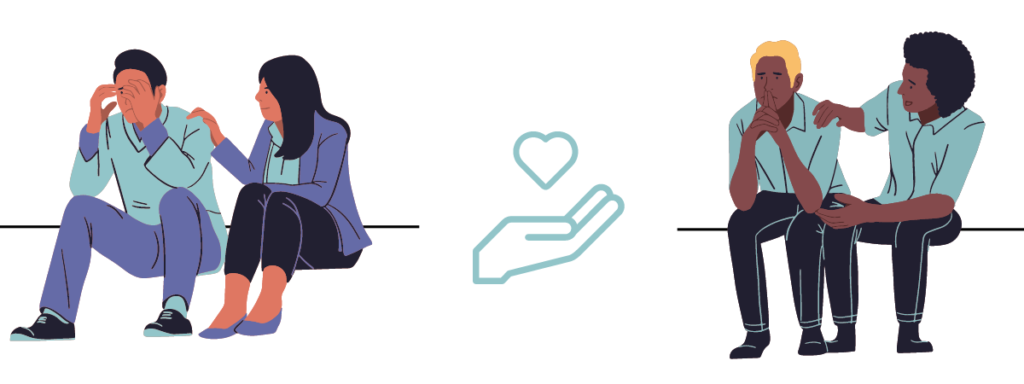When you have a physical ailment, like the flu or a sprained ankle, it’s usually pretty easy to say “Hey, I’m not feeling so great this week,” or “I’m in a lot of pain today.”
On the other hand, it can be so difficult to tell people “I have depression,” or “I’m feeling really anxious this week.” You might feel ashamed or you might feel like your loved ones simply won’t understand.
Our goal is to provide you with some starting points for talking to your loved ones about your mental health.

1. Before you talk to your loved one, ask yourself what you would like to achieve from the conversation:
Do you need support or help?
Do you just need to tell someone about your mental health?
2. Before you start the conversation, ask your loved one if they have the emotional availability:
“I would really like to talk with you about what is going on with me. Do you have the emotional space to talk right now?”
“I need some support right now. Do you have the space to support me?”

3. Your loved one may ask how they can help. Prepare for that question. What can they do to help you?
We have some ideas for ways your loved one can help you.
They can…
- Help you find resources, such as setting up an appointment with a therapist and/or psychiatrist.
- Be your accountability partner.
- Provide you with advice/feedback.
- Visit nami.org for support resources, like mental health education resources family support groups.
4. Your loved one may not respond well to the conversation. What can you do if the conversation doesn’t go well?
Understand that it is okay to end the conversation at any time and walk away.
Have another loved one you can speak with.






